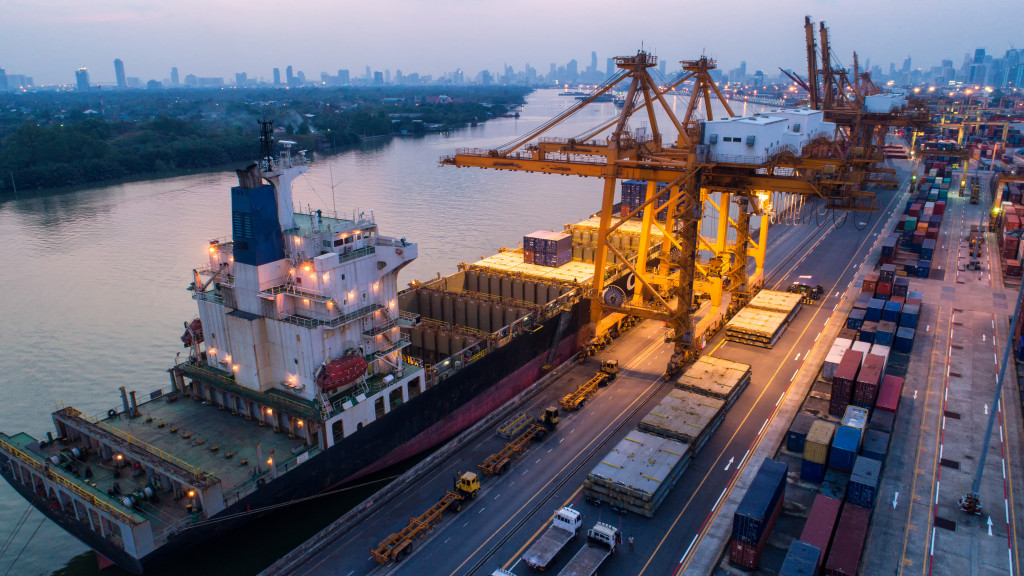There has been widespread anxiety and uncertainty due to the COVID-19 virus outbreak. This outbreak has resulted in the suspension of all normal daily activities like going to work, taking a walk in the park, or even setting foot outside your home in some countries. The maritime freight industry and shipping companies, in general, have been severely affected by the emergence of this virus. As a result of these outbreaks, the shipping sectors have laid off employees to protect public health and stop the spread of COVID-19. Due to the quarantine protocols set by government and health agencies, all water and airborne freight were placed on hold as the virus might be transmitted from one port to another by transferring goods on vessels by air or sea. In addition to the ports in China where many believe the virus originated, this broad epidemic has launched a significant burden on the shipping and marine sector worldwide. To better understand what follows in this sector, you need to know the following trends:
Reactions to the Outbreak
Container shipping adopted greater discipline, lowering capacity and decreasing costs to preserve profitability rather than market share when cargo volumes fell during the crisis. This posed a new challenge to the structural market imbalance, as many studies noted.
As a consequence, despite low demand, freight prices remained constant. When seen through the eyes of shipping companies, these tactics resulted in significant restrictions on cargo capacity and lengthy delivery times. Players in the marine industry adapted their operations, finances, sanitary and safety standards, and working processes and practices to deal with pandemic-related interruptions. A few countries have enacted laws and regulations to improve border security while still facilitating commerce.
To keep commerce flowing through the crisis, border agents, port employees, and customs officers perform an essential role in ensuring there are no traces of the virus in the cargo. Improving trade facilitation in the future will need looking at what has worked in the past.
Temporary Suspension of Port Operations
There have been quarantine periods in force, and ports closed to protect the safety of employees. Quarantine and safety protocols also imposed different restrictions, such as the prohibition on marine vessels entering specific nations, which has required that such vessels remain on the sea and not have a destination port to travel to. Certain countries have limited or banned the entrance of ships, which has resulted in unrest among the world’s maritime transportation infrastructure.

Declining Cargo Demand
Every country’s health authorities are taking precautions to prevent the spread of COVID-19, which has resulted in a decrease in international trade in products and commodities. There is a 14-day waiting time or a waiting period set by port authorities that prevent perishable products from being sent across borders in every nation. This has reduced the demand for products that could previously be transported easily by ship or other maritime vehicles due to a rigid set of regulations and procedures. Due to difficulties in the quarantine period, cargo has taken longer to transport, which has resulted in a decrease in demand.
Conflicts
Because charters lose time and money when disagreements arise over vessel hiring, the owners and charters of these boats are forced to settle their differences via litigation. As a result of these disagreements, lawsuits are being filed over the length of time a charter company was allowed to use a particular vessel before that time was reduced due to force majeure.
Taking advantage of the Digital Revolution
Because of this, the study notes that the maritime sector, particularly ports, is now more convinced than ever before of the benefits of digitization and paperless documentation. During the pandemic, many of the trade facilitation measures will need further digitization and automation in the years to come. Pre-arrival processing, electronic payments, and customs automation all assist in speeding up international commerce by accepting digital copies rather than physical ones.
Conversely, the outbreak has shown that digitization comes with increasing cybersecurity concerns, including the possibility of supply chain and service disruptions in marine commerce across the world.
International Implications
United Nations Conference on Trade and Development (UNCTAD) calls on governments to identify sailors as essential workers exempt from the COVID-19 travel ban. This implies that the worldwide industry will have to function in a more limited capacity in the coming months. The COVID-19 pandemic is not the primary cause of this but rather a side consequence of its spread, the implementation of the 2020 IMO sulfur limit, and the failure to execute the US-China phase one trade deal in the first place.
The COVID-19 pandemic might have affected international commerce. But many experts are still optimistic about the maritime freight industry. With easing health restrictions and companies adapting to the changing times, the world can recover.

